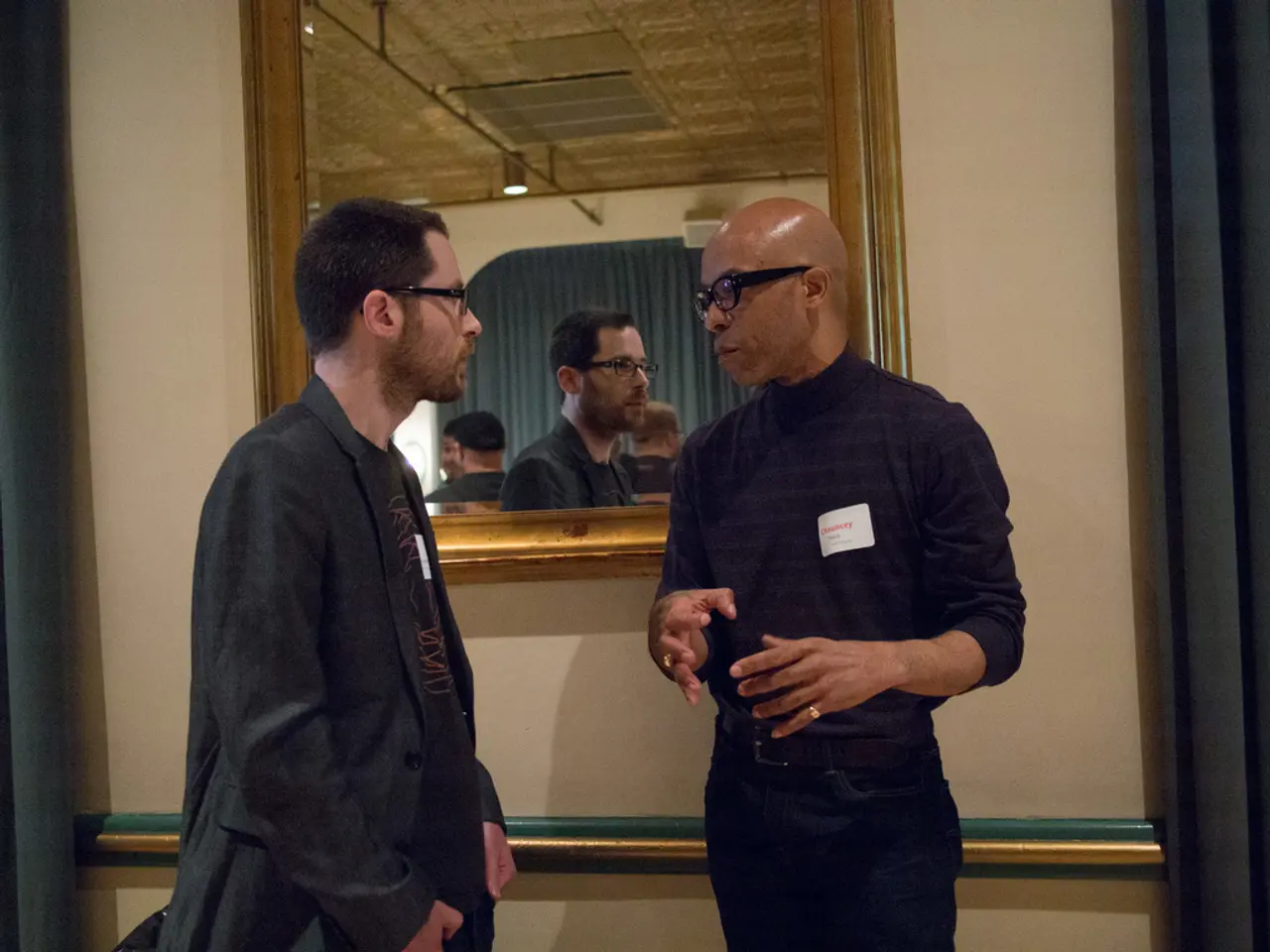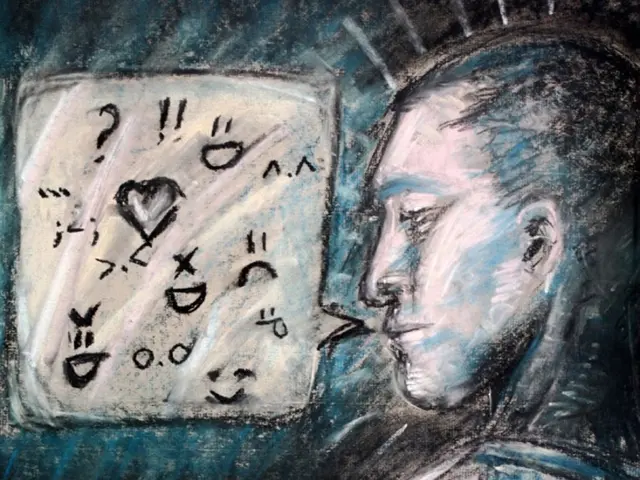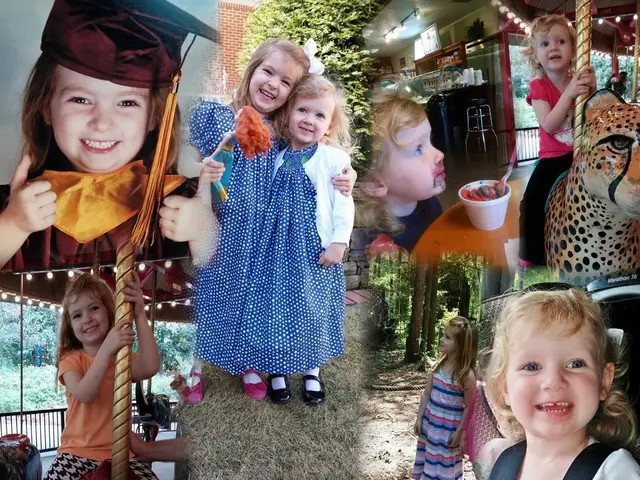Jesse Majome champions the rights of Zimbabweans for access to healthcare services in South Africa
In South Africa, a contentious issue has arisen concerning the access to healthcare for undocumented Zimbabwean migrants. Protesters have taken up positions outside clinics, demanding identity documents and denying entry to those who cannot prove their legal status.
Despite South Africa's Constitution and the National Health Act guaranteeing everyone, including undocumented migrants, the right to health services, these individuals face significant legal and practical challenges. The Constitution (Section 27(1)(a)) affirms this right, and the National Health Act and Refugees Act reinforce it.
However, the Immigration Act, which requires healthcare workers to report undocumented foreigners to immigration authorities, creates fear and discourages migrants from seeking care. This fear has led to instances where anti-migrant groups have actively blocked Zimbabwean and other foreign nationals from entering clinics and hospitals, particularly in Gauteng and KwaZulu-Natal provinces.
The denial of access and lack of prescriptions have placed lives at risk, with many undocumented migrants unable to retrieve medical files or refill vital medications. Language difficulties and lack of culturally sensitive services further hinder healthcare access, sometimes leading to misdiagnosis and inadequate treatment.
South African authorities have expressed concerns about the strain on public health resources due to Zimbabwean migrants. However, evidence does not support claims that foreign nationals disproportionately burden healthcare, and many migrants contribute economically to the system.
The South African Human Rights Commission has condemned the unlawful gatekeeping and ongoing policy confusion that enables some hospitals to ignore legal obligations. The Commission reaffirmed in July 2025 that healthcare is a constitutional right. Jessie Majome, the Zimbabwe Human Rights Commission chairperson, has called on South Africans to show compassion toward Zimbabwean migrants.
Majome emphasized the need for Africans to return to a spirit of empathy and justice, reminding the public of the historic solidarity Zimbabwe offered during South Africa's liberation struggle. In the past, Zimbabwe was one of the African countries that hosted South Africans.
Protesters, including Operation Dudula, have escalated their actions, blocking access to hospitals such as Kalafong in Gauteng. Legal challenges are now in motion to address exclusionary practices, particularly in Gauteng. Majome warned that intolerance and xenophobia can negatively impact those contributing to South Africa's economy.
Despite Section 27 of South Africa's Constitution, which guarantees emergency medical treatment for everyone, regardless of nationality, systemic xenophobia, enforcement contradictions, and resource pressures create significant barriers in practice, exacerbating risks for this vulnerable population.
- The issue of healthcare access for undocumented Zimbabwean migrants in South Africa is causing controversy.
- Protests are occurring outside clinics, demanding identity documents and preventing entry to those without legal proof.
- The South African Constitution and the National Health Act guarantee healthcare rights to all, including undocumented migrants, but face legal and practical challenges.
- The Immigration Act creates fear among migrants, as healthcare workers are required to report undocumented foreigners to immigration authorities.
- This fear leads to instances where anti-migrant groups block foreign nationals from entering clinics and hospitals, particularly in Gauteng and KwaZulu-Natal provinces.
- The denial of access and lack of prescriptions endanger lives, as many undocumented migrants are unable to reclaim medical records or refill crucial medications.
- Language difficulties and a lack of culturally sensitive services further complicate healthcare access, sometimes leading to misdiagnosis and insufficient treatment.
- South African authorities express worries about the strain on public health resources due to Zimbabwean migrants, but evidence contradicts claims of disproportionate burdens.
- Many migrants contribute economically to the health system, but face exclusionary practices, particularly in Gauteng.
- The South African Human Rights Commission has condemned these unlawful practices, reiterating healthcare as a constitutional right.
- Majome appeals for compassion towards Zimbabwean migrants, reminding the public of historic solidarity offered during South Africa's liberation struggle.
- Protesters like Operation Dudula have intensified their actions, obstructing access to hospitals like Kalafong in Gauteng.
- Legal challenges are underway to address these discriminatory practices.
- Majome warns that intolerance and xenophobia can harm those contributing to South Africa's economy.
- Despite Section 27 of the South African Constitution guaranteeing emergency medical treatment for everyone, irrespective of nationality, systemic xenophobia, enforcement inconsistencies, and resource pressures hinder the effective implementation of this right.
- Chronic diseases such as chronic kidney disease, cancer, and respiratory conditions pose a threat to the health of undocumented migrants, as access to treatment is often restricted.
- Digestive health, eye health, hearing, and skin conditions also pose challenges, and many migrants do not receive timely therapies and treatments.
- Weight management and cardiovascular health are imperative for preventing chronic diseases, but are difficult to maintain due to limited access to fitness and exercise facilities.
- Medicare, despite being a significant part of the US healthcare system, does not cover undocumented individuals, leaving them vulnerable to medical emergencies.
- CBD, a compound found in cannabis, is gaining attention for its potential benefits in treating skin conditions and relieving anxiety associated with mental health disorders.
- Mental health is crucial to overall well-being, but access to mental health services remains limited, creating barriers to personal growth and career development.
- Skin care is essential for maintaining healthy skin, but skin conditions such as acne, eczema, and psoriasis can be difficult to manage without proper education and self-development.
- Mindfulness practices, such as meditation and yoga, have gained popularity in workplace-wellness initiatives, promoting productivity, mental clarity, and career development.
- War and conflicts often result in displacement and people seeking healthcare in foreign lands, making it crucial to address policies and legislation that ensure access to care for refugees and asylum seekers.
- Car accidents, fires, and crimes can occur at any time, emphasizing the need for adequate healthcare access for all, regardless of nationality or legal status.
- Educational resources, including online education, job search platforms, and general news outlets, can help provide information and support to undocumented migrants seeking to improve their health and wealth.
- Crime and justice issues should be addressed through fair and equitable policies to ensure justice and promote societal harmony.
- In the process of goal-setting and lifelong learning, skills training and sports activities like football, soccer, basketball, and baseball can provide opportunities for personal growth, mindfulness, and stress relief.
- Policy-makers, healthcare professionals, and society as a whole need to work towards removing systemic barriers and creating a more inclusive, compassionate, and equitable healthcare system for all, regardless of nationality or immigration status.






